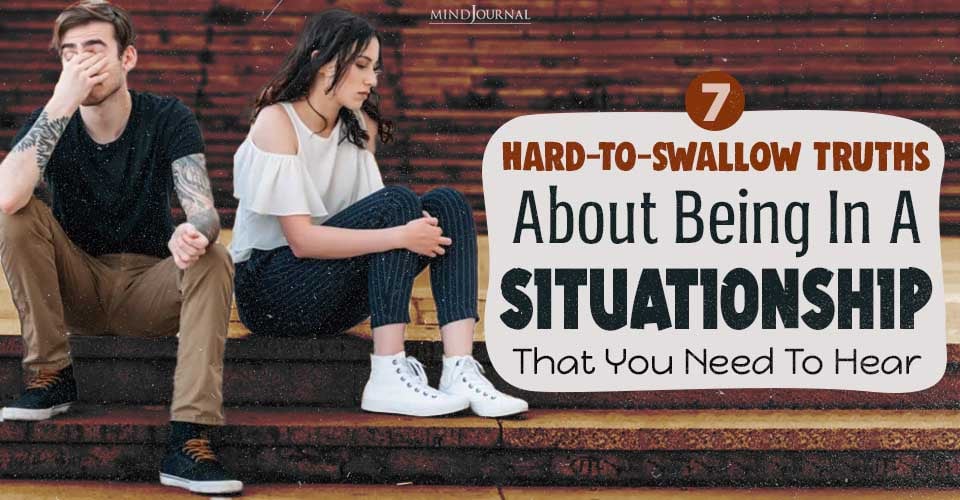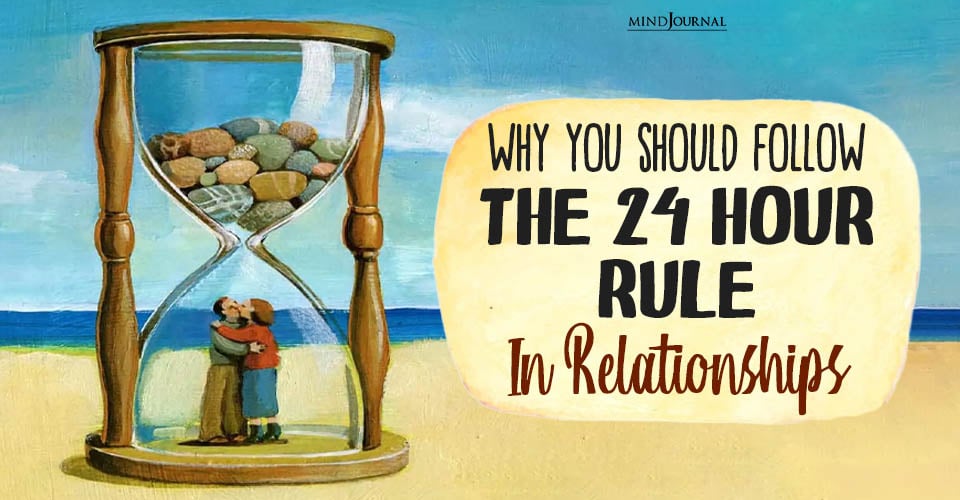Romantic relationship, according to experts, goes through different trajectories of transitions. One of these is on-again-off-again relationships. You might have come across at least one person who you have seen running into their ex’s arms like nothing happened two months back. For some, the break-up is not a transition at all, it is, in fact, a part of their relational pattern.
Some of them are in a relationship, yet disconnected, some of them get separated and completely move on, some of them are ‘not together, but also not really separated’, while the rest of the few is going on and off about a relationship.
Once they believe nothing is really working out, they break up in the hope of finding peace, only to readily find themselves drawn to their exes once again. So they patch things up, with the optimistic view that things will soon brighten up.
No doubt, this time too, the chemistry does not get any better and things go off again. If this scenario seems evocatively familiar to you, then you must have come across an instance of an ‘on-off relationship’, which is sometimes addressed as ’cyclical relationship’ or ‘relationship churning’.
Most of us are of the belief that a relationship can only be either on-going or terminated. No grey areas in between. Couples, however, may go through the repeated process of relational development and dissolution with the same partner.
On-again, off-again and keep looping
Cyclical relationships are gradually coming to the attention of researchers dedicated to gathering knowledge about the nature and progression of a romantic relationship. Research shows that a cyclical relationship is quite frequent.
A survey of 279 same-sex and 266 different-sex couples revealed that about one-third of lesbian, gay, and heterosexual relationships have at some point broken-up and renewed their relationship. (Monk, Ogolsky, & Oswald, 2018).
This type of on-off relationship is typically a pattern of intimate relationships in emerging adulthood.
It is during emerging adulthood that intimate relationships come to be one of the primary bases for emotional attachments in people’s lives, joining or even supplanting relationships with parents and friends. (1)
Unfortunately, the risks associated with relationship cycling during emerging adulthood appear to be enduring in nature, adversely affecting commitment, relationship stability, and quality during later cohabitation and marital life. ( Vennum & Johnson, 2014)
Now, the question is, why couples whose relationship is marked by negativity would be drawn to it once again? Why did they break up in the first place?
Some relationships come to an end, but later lead to reconciliation but those cannot be categorized in on-off relationships. In a reconciled relationship, partners have previous knowledge of each other’s pattern of interaction, these are not characterized by negativity like repeated conflicts, dissatisfaction, lack of commitment, disconnect, etc, which are some salient features of a cyclical relationship.
So, what exactly entails an on-again off-again relationship?
Related: 10 Ways To Know You’re Officially Over Your Ex
Distinct characteristics of on-again/off-again relationship:
1. Relational uncertainty.
One of the key features of the on-off relationship is uncertainty regarding the relationship and why it led to the break-up. The people who engage in this type of cyclic relationship have confusion regarding the general nature of their relations.
They lack clarity about their relationship’s definition, norms, limits, boundaries, and also its course. Research regarding on-off relationships found that on-off partners report more uncertainty about the general nature of their relationships than do non-cyclical partners. (2)
2. Uncertainty about the relational status.
The partners in such a relationship are also not always certain about when exactly their relationship ended, pertaining to their repeated break-ups.
Uncertainty about the situational status of the relationship can also result from the partner’s ambivalent feelings regarding the dissolution of the relationship or one partner’s vague break-up interaction to leave open chances of a reunion. (Dailey, Rossetto, et al., 2009)
People who had previously experienced an on-again/off-again relationship confessed:
“A big major stressor was the uncertainty. I wasn’t even sure myself if we were really broken up or not.”
“Not knowing whether we were completely not dating if it was okay to date someone else at that time.”
“The not being in control, the unknown of what was going to happen.”
Hence, it is understandable that the higher the indecisiveness regarding the termination of the relationship, the greater are the chances of reuniting once again.
Related: How to Get Your Boyfriend to Chase You Again
3. Ambivalence.
Ambivalence occurs in a romantic relationship where there is a coexistence of opposing emotions towards one’s partner. This creates confusion within the partner as to whether they want to commit to the relationship or disconnect.
When a relationship is viewed in polarity, everything related to the relationships starts to be judged as good or bad. Under such a circumstance, no experience provides a complete feeling of pleasure, as there is always an opposing feeling at the back of your mind.
How much an individual identifies with one extremity of the polarity is crucial in determining if the ambivalence will ever be resolved or not.
In on-again-off-again relationships, one or both the partners, never end up resolving the ambivalence. Chronic ambivalence in a relationship can create a defensive stance in the partner, which will make the relationship completely dissatisfactory, leading to a break-up. While the positive attributes of the relationship will keep pulling one back to one’s ex.
A person, confesses “inconsistency” as one of the stressors in an on-off relationship. “You care about the person, but you can’t get along with them. You don’t want anyone else, but that person isn’t really a good partner at the time. When you break up with them, you miss them. When you get back with them, sometimes things don’t change.”
“The same sort of excitement that was intoxicating at the beginning ended up being stressful in the long run.”
4. Unbalanced expectations.
An on-off relationship is often marked by unbalanced expectations which means both the partner has unequally weighted expectations. These expectations might even be extremely distinct, opposing in nature.
Every stable relationship requires a middle ground for both the partners to settle their differences. For doing so, both of them need to compromise a little on their parts.
These unstable expectations, some of which might be unrealistic, impossible to achieve, unexpressed by either of the partners, increasingly create a huge gap between the partners, leading to indifference and disputes to surface.
It is natural to have differences in opinion, needs, value system, and expectations but a middle ground is expected to be reached to sustain stability in a relationship.
Related: 16 Practical Ways to Fall in Love All Over Again
5. Doubt or disappointment.
Doubt and disappointments are quite often natural in any relationship. But the nature of doubt here is not typically that of infidelity. The doubt is regarding the expected or promised changes in the relationship after reconciliation.
One of the other partners is always doubtful about any possible positive changes which were believed to occur once they reunited. People who have been in an on-again/off-again relationship, confessed, “Each time, you think it’ll be different, but when it ends, you just feel stupid like you should’ve seen it coming again.”
“It is frustrating to always think that the other person will change, and yet they never do.”
The repeated cycle of anticipating change, trusting in the relationship to turn towards the positive, being betrayed once they re-work on it lead to the feelings of disappointment. This disappointment finally ends in breaking up of the relationship. This persistent cycle of doubt and disappointment is a salient feature of on-again-off-again relationships.
On-again off-again relationships might be a habit for a number of romantic couples out there. But how psychologically healthy is this constant roller-coaster ride for you?
Related: 10 Things To Do Before Falling In Love
This markedly depends on how the cohabiting couples negotiate their transitions, communicate each other’s needs and expectations, set one’s personal boundaries, evaluate one’s single lives to ensure that the renewal of the relationship is best thought of.
Whether the partners will be able to successfully maintain an on-again/off-again relationship depends completely on the two people involved.
References:
1. Furman & Buhrmester, 1992; Meeus, Branje, van der Valk, & de Wied, 2007
2. Dailey et al., 2010; Dailey, Pfiester, et al., 2009
3. Dailey, R. M., Jin, B., Pfiester, A., & Beck, G. (2011). On-again/off-again dating relationships: What keeps partners coming back?. The Journal of Social Psychology, 151, 417-440.












Leave a Reply